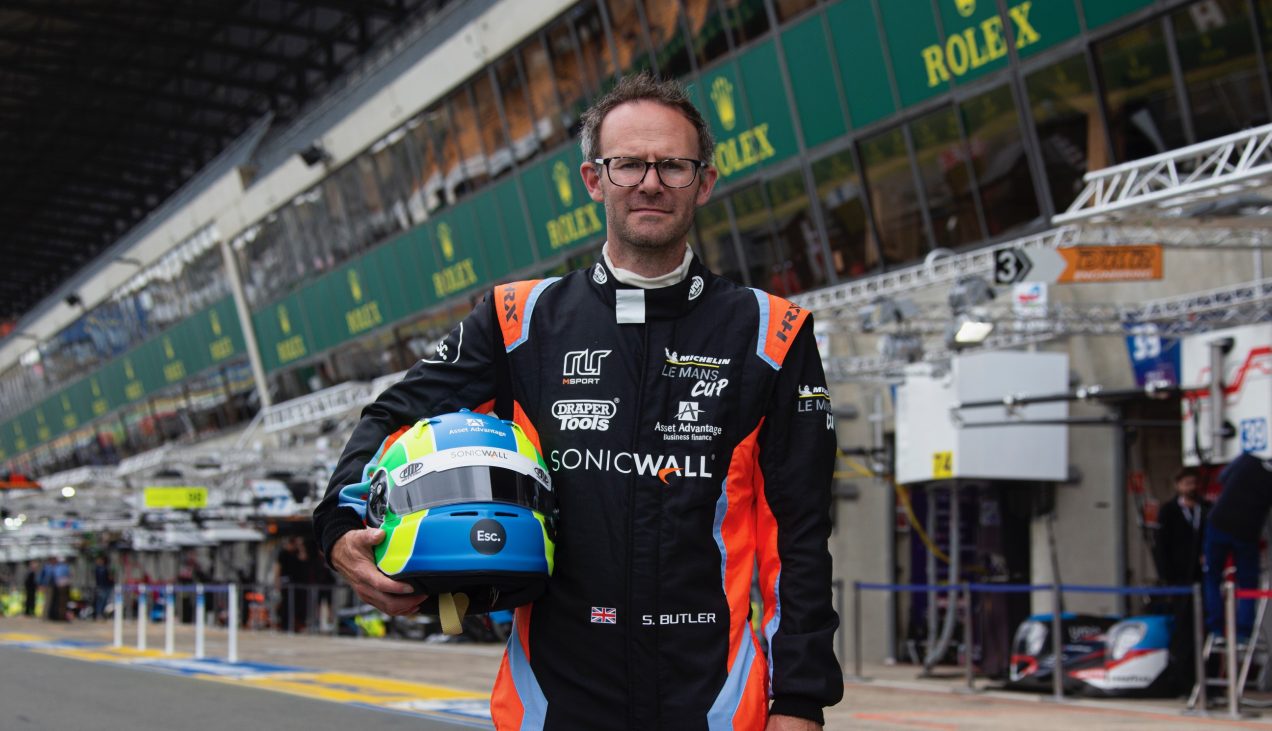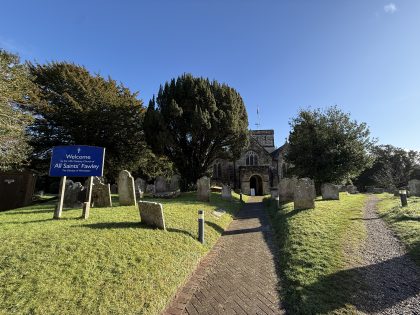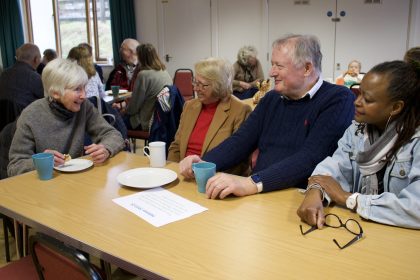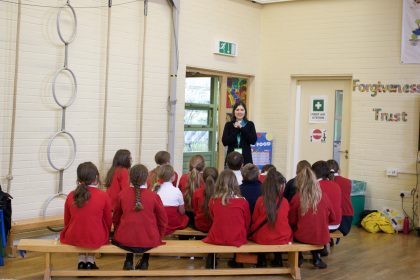Revd Simon Butler from St Mary’s Church at Upton Grey has captured the attention of the world’s media with his passion for car racing. He’s become known on the circuit as the ‘Racing Reverend’. For more than 30 years Simon has competed in major events around the world, including Le Mans. St Mary’s is one of 12 churches in the North Hampshire Downs Benefice.
How did your passion for racing start?
I started racing around 34 years ago when I was 11 years old. We didn’t have any sort of family background in motorsports, but I just loved cars. Mechanically I was really interested in them but also, I loved motorsport and I used to watch the Grand Prix in the early/mid 80s with Nigel Mansell and Nelson Piquet. At about the age of 11 or 12, I realised that I wasn’t a very good football player and so wanted to find a sport that I could do and be good at. I convinced my dad to let me try go-karting and I turned out to be quite good at it and from that one outing began what’s been a 34 year obsession with cars and racing them.
Tell us a bit about the cars that you drive
Over the years that I’ve raced, I’ve driven almost every type of car from go-karts to Formula One cars to sports cars and modern cars, old cars and everything you can imagine really. At the moment, I primarily drive historic cars, from the 1950s and 60s mainly. They’re quite rare and beautiful cars and they’re fun because they’re so involved mechanically and you have to do so much with them.
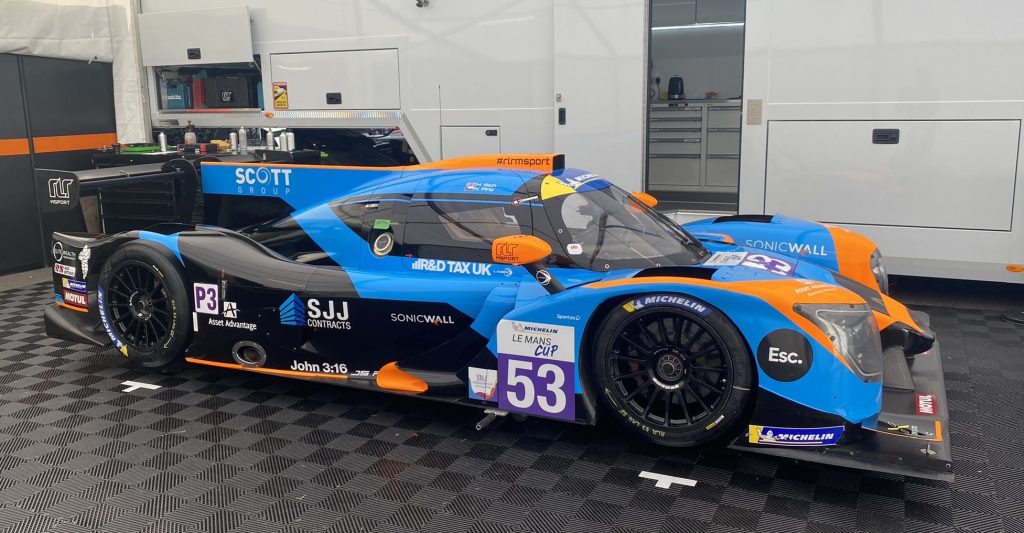
I also drive very modern cars in what’s called Le Mans Prototypes, so they are the cars that do the 24 Hours of Le Mans. The two worlds are quite different. The modern car racing is very high level, very high pressure, so it’s quite demanding, whereas the old cars are purely for fun, although there are a lot of ex-Formula One drivers or touring car drivers or Le Mans winners who are racing them, so there’s a very high standard of racing which is really good.
How do you balance that passion with the calling to be a vicar?
For me, I don’t think I see them as competing things that I need to balance. Obviously, time to go racing is limited, but then when you’ve got work and a family in any situation time is limited isn’t it? For me, they sit alongside each other without any kind of tension. I guess it’s an unusual hobby, but from 20 years of ministry, one of the things that I’ve learned is that you need to have outlets which bring you real joy and rest and allow you to switch off from ministry.
For me racing does that, because when I go away racing with the team, we’re focused on one thing and that’s winning races. All the other demands and pressures and noises in life get completely switched off. Anything can be going on but I don’t think about it because there’s not headspace to do that.
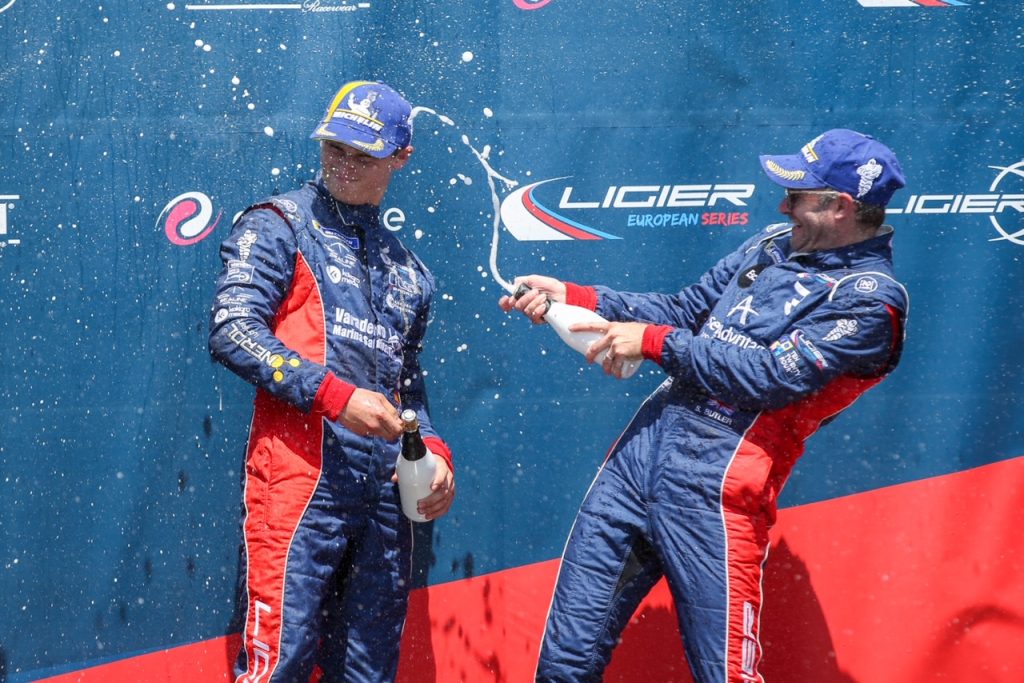
Different clergy find it in different things, but there’s a benefit in having that escape. For clergy, as in many other professions, day-to-day life is very complex and multi-layered and there’s lots going on, lots of responsibilities and competing demands on time. What I think I’m doing is slightly monastic. I’m going into a place of simplicity, where only one thing matters, winning races when we’re on the track. Everything is geared towards that, and that clarity of focus for me is really restorative.
How important is it for clergy to have that in terms of well-being?
There’s a brilliant book, which is written by a vicar, which I regularly quote in our parish magazine called ‘A Field Guide to the English Clergy’. It charts a lot of eccentric clergy across the last 500 years but one of the things I think is important is that it picks out a lot of clergy who were not two-dimensional, they were not just clergy, they were rounded, interesting, broad people with a range of interests. Lots of things that they did all came together to shape them and bring kind of colour and vitality to their ministry. I genuinely think clergy are some of the most interesting people on the planet, they’re fascinating and I think it’s important that clergy don’t get drawn into the trap of being solely defined by one particular function. I think the best clergy are those who have got other interests and things they do, and I think it’s important.
What’s the reaction of the racing world when you say you’re a vicar and does it give you an opportunity to share your faith?
Yes, it does. Three years ago I went to the European Le Mans series. I thought because it was European, I wouldn’t be known as the vicar, as I am in the UK, but interestingly it wasn’t so. From day one, the championship organisers wanted to talk about the vicar thing, and the team wanted to talk about the vicar thing, and competitors wanted to talk about the vicar thing. I quite enjoyed that.
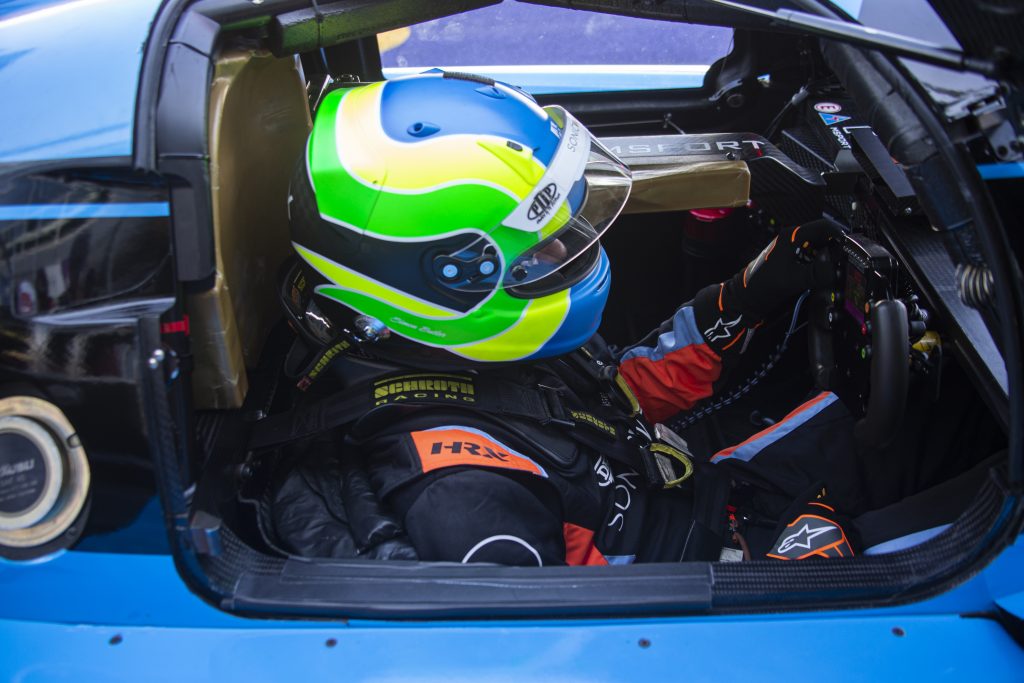
I like the fact that I’m never not a vicar, but I’m never just the vicar, and that has definitely created opportunities. In the professional world, some of the drivers are quite young, they’re away from home a lot, operating under incredible pressure, vast financial investment and with the promise of fame and fortune, but only one out of a hundred is ever going to make it, probably even less. You’ve got teams who are on the road weekend after weekend, so face pressures in their home life. It became a little bit like I was the vicar of the parish of the European Le Mans series, which I suppose is just another kind of industrial chaplaincy basically. That feels good and right, and almost unavoidable.
And in this country do people come and talk to you about your problems?
Loads. In the racing world, I’m known as the ‘racing reverend’, and all the commentators know it, and my competitors know it, and the teams know it, and it’s good, and it’s an open door to be a visible person of Christian faith, which is great.
And what do your congregation here make of it?
I would say by and large people really like it. I think there is a challenge for some people who have a particular view of what a vicar is, and what a vicar should be like. If my hobby was botany, or reading, or walking, then nobody would notice it. Because it’s different, for some people it challenges their notion of what a vicar is like. That’s fine, and it’s good to have that challenged. I think most people love it. Whenever we are on the TV or radio or in the newspaper, the first messages I get are usually from people who are not congregation members, who say I love that this is what our vicar does. Our non-regular church folk often have a more relaxed and broader conception of what a vicar is, and what a vicar should be like. So, there’s an interesting dynamic there but by and large people are very supportive.
So, it’s a real conversation starter?
Yes, it is. In our village, we have a lot of car enthusiasts and so it’s an easy point of connection. If we’re racing in the UK, we’ll invite 20 people from the village along to the race weekend, and they’ll have a bit of hospitality, and enjoy being part of it. It opens up opportunities, I think.
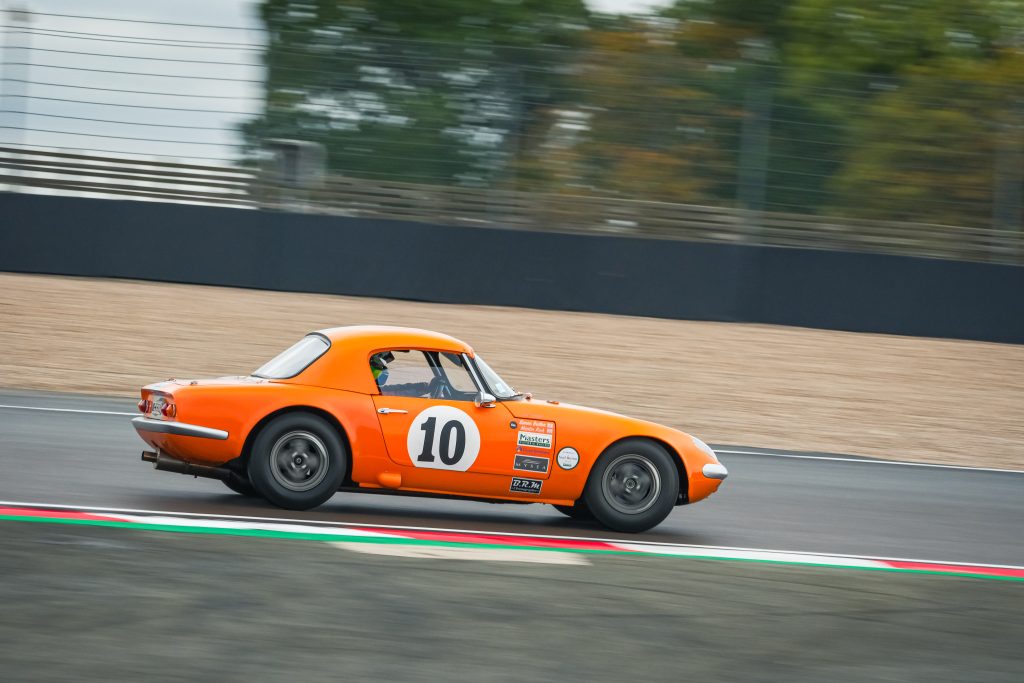
Does it help you in other ways, in terms of bringing you into different worlds, people and connections?
Yes, it does. I think one of the challenges for full-time clergy is that the inner life of the church can become so consuming. Being a vicar is like any other role, any other job, it has certain pressures, and certain demands and we don’t, perhaps, talk about how blessed it is to be a vicar.
Being in the racing world keeps me connected to a world that’s beyond the boundaries of the church. I think it’s important to have a foot in another world, because sometimes clergy can be a little bit insulated from the rest of the world.
And you’ve just started a new role within rural ministry.
We’ve been in the North Hampshire Downs benefice for 10 years. I love rural ministry, and I think it’s the most exciting place to minister. I love the way rural communities work and the opportunities that the rural church has. I think it’s the most stimulating and interesting area to minister in.
I’ve done city centre ministry, and I have a real heart for rural ministry, partly because it’s where I grew up. After nine years of being here, I dropped down to half-time in the benefice and handed over the rector role to my associate rector. Now I’m also working half-time with the Diocese of Winchester’s Growing Rural Parishes project.
As the role evolves, it’s going to be about leading our support for rural multi-parish benefices, how we encourage and resource and support them, how we recruit the brightest and the best into long-term, joyful, life-giving, flourishing ministry in rural multi-parish settings. I’m quite excited, and I also want to be a bit of a thorn in the side to the National Church, because I think it needs to commit significantly more resources into rural multi-parishes. It needs to see rural multi-parishes not as a problem that needs solving, but as a gift. It gives me scope to be engaged with the wider church, and what’s being discovered and learnt in other dioceses around rural multi-parishes because there’s some really good work going on.
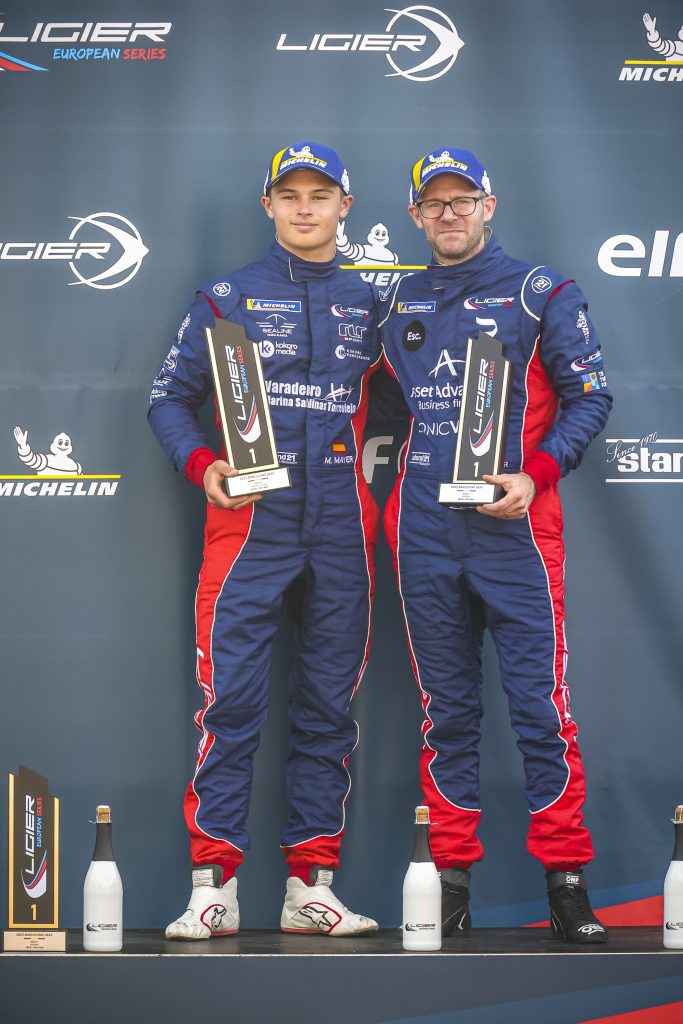
And still have time for the racing?
Still have time for the racing, yes. Racing is non-negotiable! We’re working on next season now. There’s a European Historic Racing Championship, which we’ll almost certainly do.
I’ve got an interesting offer to drive for Porsche in modern GT cars. If we can do that, it would be great but until all the sponsors are lined up, it’s difficult to say.
One thing I’d love to do is to extend an invitation across the diocese. If there are any clergy who have groups of people who connect over cars and build relationships over cars, I’m always happy to host people at race events. So, people can drop me a line and I can let them know where we’re racing and what we’re racing, and I am super happy to host groups and talk about cars and talk about faith.

